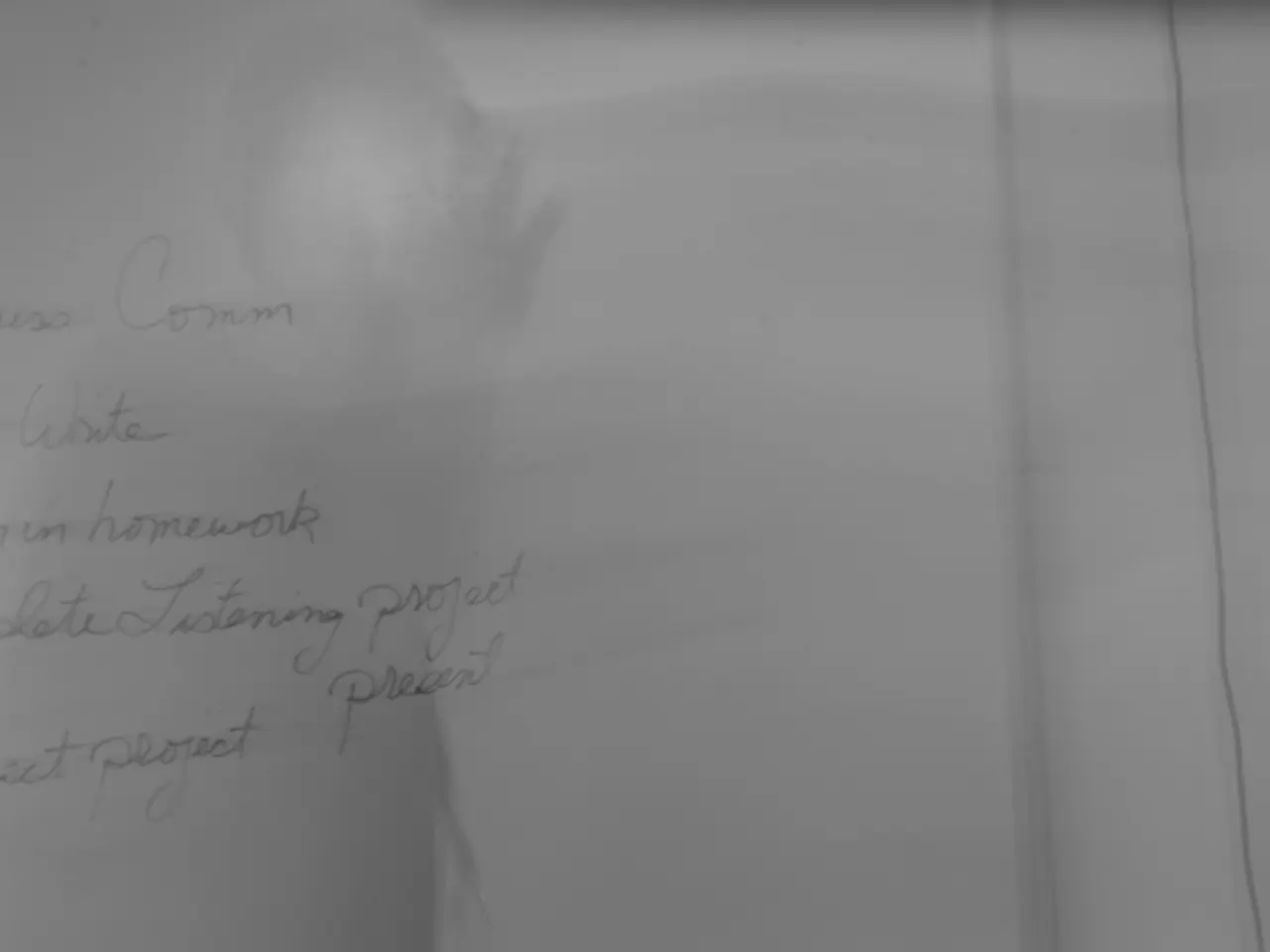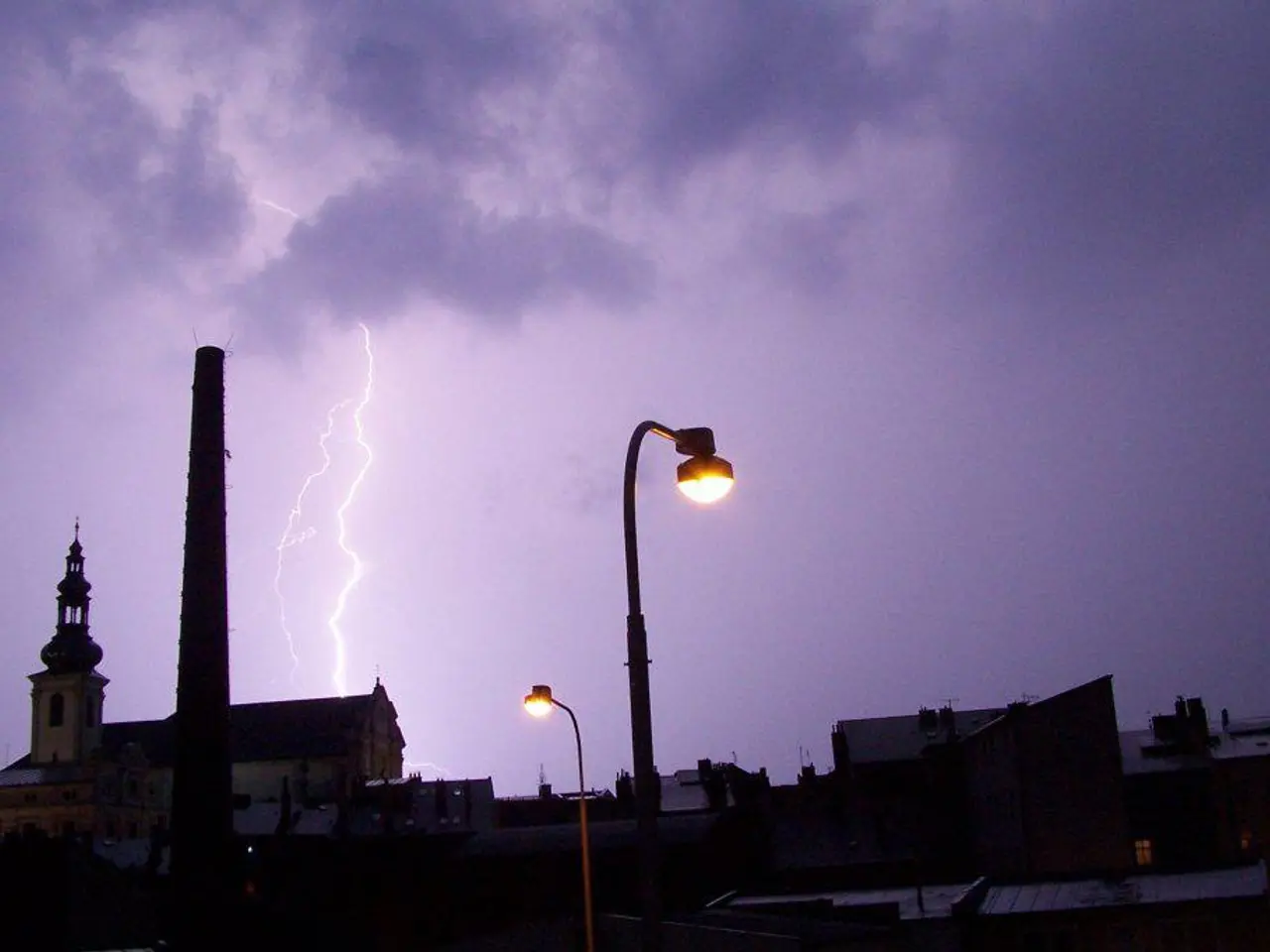Prolonged Conflict Must Cease (Ukraine Variant)
It's been over three years since Russia ramped up their invasion of Ukraine, igniting Europe's biggest land war since World War II. The brutal, unrelenting conflict continues to chew through resources and lives, with both sides unwilling to back down or negotiate a truce.
The recent Ukrainian offensive in Kursk showcased Ukraine's ability to claim victories, keeping Western support alive. However, it hasn't substantially changed the strategic landscape or the war's trajectory. Russia's President Putin seems convinced that he can outlast the West, while Ukrainian President Zelenskyy believes his ability to compromise is limited given the brutal tactics Russia has employed and the immense sacrifices Ukraine has made so far. Fears linger that any temporary ceasefire would just give Russia time to regroup and renew its aggressive campaign.
This senseless war is a clear violation of international norms and is significantly reshaping the geopolitical landscape. It has strengthened an Axis of Upheaval, including Russia, China, Iran, and North Korea, who aim to challenge the current global order. Experts warn that the world we live in is more dangerous and complex than during World War II, with the risk of a broader global conflict hovering around 20-30%. The war in Ukraine continues to drain resources while creating the potential for an escalation.
Despite the unwillingness to compromise, it's becoming increasingly clear that this war can't go on forever. Both Russia and Ukraine face severe manpower and materiel shortages that will only worsen as the conflict drags on. Russia has reportedly lost over 700,000 soldiers since the beginning of the conflict and is consuming its stock of Soviet-era weapon systems at an alarming rate. Fresh recruits are being offered triple the average wage in Russia to join the fight, while Russia's military spending already consumes a third of the country's budget.
Ukraine also struggles with manpower issues and uncertainty about continued Western support. A new mobilization law lowered the conscription age from 27 to 25, and there's growing anxiety about the sustainability of Western aid given the six-month delay in passing the last Ukraine aid bill in the United States and potential cuts in aid from Germany. Public support for American aid to Ukraine has also dropped significantly.
Amidst the grim reality, there are signs that a resolution might be necessary. Both sides can't sustain this war indefinitely. So, what would a negotiated settlement look like? How might this war end?
The question of "why now" has become increasingly relevant. Russia may not be able to sustain the war indefinitely due to the mounting costs. Meanwhile, Ukraine, while resilient, may need to reconsider its stance in light of the uncertainty around continued Western support and growing public opposition to the war.
A potential settlement could involve compromise – something that seems distant considering the hostility between the two sides. Ukraine, with international support, could renounce claims on the Donbas territory in exchange for Russian forces withdrawing from eastern Ukraine. Russia would claim victory while Ukraine could put its NATO ambitions on pause until a new leader takes charge. Ukraine would regain Crimea and annexed territories like Kherson and Zaporizhzhia oblasts, receive significant economic support to rebuild, and secure some form of security guarantees.
While such an agreement would be far from ideal for Ukraine, it might be the best way to prevent the war from dragging on and risking further erosion of Western support. It offers Ukraine the opportunity to rebuild its infrastructure and economy, attracting its large diaspora back to the country, and potentially leading to the development of a functioning and prosperous democracy that serves as a contrast to the Russian system.
For the West, a settlement would reduce the immediate strain on resources, allowing some refocus on China. It would provide time to build up forces and a defense industrial base for future large-scale wars. Most importantly, it would enable the West to act on the recommendations of the Commission on the National Defense Strategy.
For Russia, a settlement might simply offer a pause in the bleeding, allowing time to rebuild its military forces. Putin's long-term goals likely include challenging the West and eroding US influence globally, using this pause to regroup and continue his political or irregular warfare campaign against the West.
Of course, a negotiated settlement isn't without its counterarguments. Some argue that compromise rewards aggression and emboldens future aggressors. However, the costs to Russia have been high, forcing others to think twice, and the West could use any pause in the fighting to build up its forces and realign resources for the broader global competition. By doing so, the West could deter similar aggression and avoid the risks and costs of direct large-scale war.
In the end, a negotiated settlement may be an imperfect peace, but it could offer a chance for Ukraine to prepare for a better future. As Colonel Chase Metcalf, a faculty instructor at the Army War College, puts it, "The Kursk offensive is the latest development in a largely stalemated war. While the probability of a settlement remains remote, it's useful to consider how this war might end, given the costs and risks involved."
- The ongoing war in Ukraine has raised concerns about national security within the military and politics, as it violates international norms and reshapes the geopolitical landscape.
- Among the countries reinforcing an Axis of Upheaval are Russia, China, Iran, and North Korea, aiming to challenge the current global order.
- Fears grow that any temporary ceasefire would only give Russia time to regroup and renew its aggressive campaign, prolonging the war even further.
- Both Russia and Ukraine face severe manpower and materiel shortages, making it increasingly clear that this war can't go on forever.
- Despite public support for American aid to Ukraine dwindling, experts warn that a resolution might be necessary due to the strains on both sides.
- A potential settlement could involve compromise, with Ukraine renouncing claims on the Donbas territory in exchange for Russian forces withdrawing from eastern Ukraine.
- Settlements might reduce immediate strain on resources, allowing the West to focus on defense strategies, sports analysis, and other matters such as car-accidents, crime-and-justice, and general-news.
- For Ukraine, a negotiated settlement could offer a chance to rebuild infrastructure, economy, and reestablish a functioning democracy, making way for future prosperity and attracting its diaspora back home.






